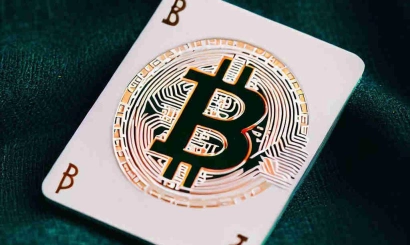"Gandalf lost." What is known about the case against Bitzlato
About the latest developments related to the situation around the trading platform
On January 18, the U.S. Department of Justice announced the suspension and arrest of the founder of the Hong Kong-registered P2P exchange site Bitzlato. According to the department, Anatoly Legkodimov (also known as "Gandalf" and "Tolik"), a Russian citizen living in China and described as the "majority shareholder" of Bitzlato, was arrested in Miami the day before.
"Today's operation sends a clear message: if you violate our laws or use our financial system for nefarious purposes while in China or Europe or on a tropical island, you will have to answer for your crimes in an American court," said Lisa Monaco, deputy attorney general of the U.S. Department of Justice.
The U.S. called the case of Russian "Tolik" a "blow to crypto crime"
The operation against Bitzlato also involved the FBI, the New York prosecutor's office, Europol and law enforcement agencies in several European countries.
Earlier that day, an announcement about the hack and withdrawal of some funds from the service appeared in the Bitzlato telegram channel. The team asked users not to refill their accounts during the proceedings, and withdrawals were also frozen. The company claimed that the attackers managed to withdraw only a small part of the funds, and all the victims are guaranteed compensation for damages. It is not known whether this event is connected with the detention of Bitzlato's head. After the announcement of the USA Ministry of Justice the website of the service was blocked by the French authorities together with Europol and law-enforcement agencies in Spain, Portugal and Cyprus.
The market reacted to the news with a slight shock: BTC exchange rate fell by 4.6% in a few minutes, ETH - by 5%. Obviously, traders have fresh memories of the "black swans" in the crypto industry - the collapse of the FTX exchange in November and the arrest of the alleged Tornado Cash mixer developer last August. This time, the fall was neither prolonged nor large-scale: Bitzlato has much less prominence in the global crypto market.
What is Bitzlato
The activity of user Anatoly Legkodymov on the profile forum Bitcointalk.org can be traced since 2011. From that moment two directions of his interests are marked - mining and cryptocurrency exchange. The words of "Gandalf"-Legkodimov in May 2011 are prophetic:
"Generally speaking, the idea of an exchange for bitcoin is not applicable. This is utopia until bitcoin is legalized. Any exchange will be banned by banks, payment systems, etc.," the future head of Bitzlato wrote.
The project's mining arm was allegedly formalized in 2015 as LGK Power, an engineering and consulting company registered in Hong Kong and engaged in, among other things, the development of mining equipment and the construction of data centers.
LGK Power is cited as the developer of a number of cryptocurrency bots launched in 2016. In 2018, on the wave of criticism of Telegram by the Russian authorities and attempts to block the social network, the company continued its activities in the form of a web service under the brand Bitzlato.
In terms of turnover, Bitzlato is far from being the largest market player. Just under 25,000 bitcoins passed through the site in 2021. That's more than $1 billion, but only 2% of the volume of transactions collapsed in 2022, the U.S. exchange FTX.
What made Bitzlato stand out from other crypto exchanges? According to analytical companies, about 20% of its turnover came or went to the addresses of known illegal market participants (such as the darknet market Hydra, the Finiko pyramid, hacker-extortionists). And given that not all of the fraudsters' wallets are marked as such, the share of "dirty" money could have been even greater.
What Bitzlato is accused of
The grounds for the arrest of Anatoly Legkodymov include the following charges:
1. Violations of customer identity verification (KYC) requirements. Many Bitzlato users worked through third-party accounts (so-called "drops"). The accusation cites messages from support chats and internal correspondence, from which it follows that the site staff was aware of the violations and did not block such accounts;
2. lack of due diligence (KYT) on deposits and withdrawals. The prosecution again cites examples of discussions with support about purse deposits and withdrawals from Hydra and other illegal schemes;
3. management's awareness of the irregularities and lack of adequate countermeasures. Law enforcement authorities had at their disposal internal correspondence of employees and documents showing that executives, including Legkodimov himself, were aware of the "dirty" crypto on their site, but for the sake of profit preservation they did not take any serious measures to combat it. Unfortunately, only excerpts of correspondence in English have been published, which makes it difficult to judge the context exhaustively;
4. Bitzlato activity spread to the territory of the USA. US-registered clients of the platform, evidence of deposits from US bank accounts, as well as requests to the platform's control servers from the US territory (where Legkodymov was arrested) were identified.
Prosecutors allege that since May 3, 2018, Bitzlato processed $4.58 billion in cryptotransactions, with a significant portion of the funds being criminally derived. Bitzlato's largest counterparty is called Hydra.
Now the U.S. authorities intend to completely shut down the crypto-exchange. In particular, according to former U.S. Treasury Department official Kari Steinbauer (quoted by Reuters), Bitzlato was decided that American and foreign banks will no longer be able to cooperate with the site. And after the U.S. financial institutions will refuse to do business with Bitzlato, the other companies will follow their example, the former official said.
What next?
The first affected party are Bitzlato users who had cryptocurrency funds remaining on the platform at the time of blocking. Representatives of the exchange promise to organize the withdrawal of stuck deposits within a few days, but the technical possibility of this may be limited if its servers are in the hands of law enforcement agencies.
The second risk already for the entire crypto-industry is a domino effect. The fact is that Bitzlato's largest counterparty was the Binance exchange (as reported by Bloomberg). It could be used by both legitimate customers and fraudsters as the next step in laundering criminal proceeds. If the militant statements of the U.S. Department of Justice are to be believed, no one can feel safe.
"We will not only catch hackers, fraudsters and criminals trying to hide their profits with cryptocurrency. We will also bring down the full force of the Justice Department on individuals and organizations that engage in illegal activities and assist cybercriminals - the likes of Legkodimov and Bitzlato," the agency said.
The third risk concerns market participants who could be accused of circumventing anti-Russian sanctions:
"At a time when Russia (...) is seeking to circumvent sanctions and international restrictions in order to be able to replenish the treasury (...), we will not tolerate illegal businesses that help Russia extract money (...)."
In the context of the Bizlato case this statement sounds very far-fetched: the site is registered in Hong Kong, and Mikhail Vladimirovich Lunev is mentioned as its CEO with a Ukrainian phone number and e-mail address. Nevertheless, the increased attention of U.S. law enforcement agencies to any participant connected with Russia should not be surprising.
- Binance destroyed $575 million worth of BNB tokens
- BitKeep will begin compensating victims of the $8 million hack starting in February
- RACIB announced the possible creation of a Russian-Iranian stablecoin
- Scaramucci announced the possible growth of bitcoin up to $100 thousand in 2-3 years
- OKX says it is "100% clean" in securing customer assets
- Binance announces delisting of anonymous token Beam




_410x245_00e.webp)


